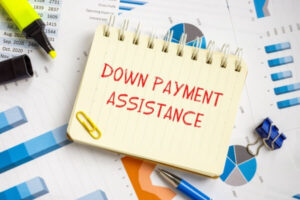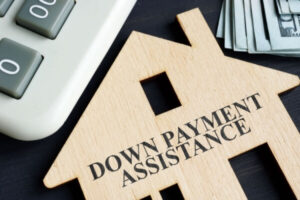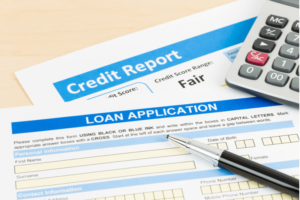Buying a home is a big decision. Buying one for the first time can be a frightening one. The dollars are big, you may be unfamiliar with the rules, and you never know whom you might be bidding against.
That’s why preparation is key. Here are 15 tips that can make the process easier to understand and help you avoid mistakes.
1. Start Saving for a Down Payment
One of the best things you can have in buying a home is the ability to put down a big down payment. But if you can’t do that as a first-time home buyer, don’t panic.
Down payments matter because they tell lenders you’re a safe investment. A large down payment can result in a low interest rate. Even if it doesn’t, the more money you put down, the less you must borrow, which will make monthly payments lower, and you’ll pay less interest over the life of the loan. Many lenders require a 5% down payment or more A 10% down payment will usually save you money; a 20% down payment will save you the most.
» Learn More: First-Time Home Buyer Requirements
Since this is your first home purchase, however, these numbers may be out of reach for you. The good news is that there are programs for first-time home buyers that lower the down payment required for a mortgage.
FHA loans are guaranteed by the Federal Housing Administration, which is part of the U.S. Department of Housing and Urban Development (HUD). These loans require a 3.5% down payment for borrowers with a 580 credit score or higher. State or local housing authorities and some nonprofit organizations also offer mortgages for first-time buyers with down payments as low as 3.5%. The Veterans Administration provides loans to veterans, active service members and surviving spouses that don’t require a down payment.
HUD has a broad definition of first-time home buyers. If you or your spouse haven’t owned a principal residence in the three years before buying a home, you qualify, as does a single parent who’s only owned a principal residence with a former spouse while married.
2. Complete a First-Time Homebuyer Education
Buying a home likely will be the biggest purchase of your life, so the more you know about the process, the better. That’s especially true if you’re doing this for the first time. That’s where a homebuyer education course can be invaluable.
Whether it’s taught in person or online, a homebuyer education course helps you understand about finding, financing, and owning a home. Some mortgage lenders require borrowers to complete this course, as do many state homebuyer assistance programs. These courses cover a variety of topics, including:
- Saving for a down payment
- How to manage your finances
- Setting a budget for buying a property
- Determining if you’re ready to own a home
- Seeing whether you have sufficient credit to get a mortgage
- How to improve your credit score
- Finding first-time and other helpful homebuyer programs
- Comparing mortgages and lenders
- Choosing the right lender
- How to live in and maintain your new home
3. Assess Your Financial Health
Before you fall in love with a house, you need to know if you can afford it. Failure to do so can result in considerable financial stress.
First things first: Decide how much you can comfortably afford to spend on a monthly mortgage. If you don’t already have a household budget, this is the perfect time to start. A budget details how much money you have coming in each month and how much money you have available to spend. Knowing how much you can afford and using an online mortgage calculator will tell you how much you can borrow.
The second factor is determining how much money you can set aside for a down payment. If your down payment isn’t large enough to fit mortgage payments inside your budget, then you can’t afford that house.
4. Consider All Costs
There are more costs to consider than just the purchase price.
- Closing costs: These typically range from 2%-6% of the loan amount. On a $300,000 loan, closing costs could be between $6,000 and $18,000. You can ask the seller to pay a portion of the closing costs, especially if it’s a buyer’s market. Closing costs include loan origination fees, appraisal and survey fees, title insurance, discount points (money paid up front to get a lower interest rate) and attorney fees.
- Moving expenses: Unless you’ve got a lot of able-bodied friends with trucks, you’re going to have to pay someone to move your furniture into your home. That can be several thousand dollars, particularly if it’s a long-distance move.
- Homeowners insurance and property taxes: These may be included in the closing costs for the first year, but you’ll need to budget for them thereafter.
- Maintenance expenses: If you’ve been renting, you don’t have to come up with money when the plumbing or electricity stop working. You’re on the hook for such things as a homeowner, so factor that into your budget.
5. Examine Your Credit Score and Debt-to-Income Ratio
Your credit score is a major factor in qualifying for a loan and the interest rate you’ll get. The higher the score, the lower the interest rate.
Do you know your credit score? There are several sites online that will provide it for free. The score is based on information provided to the three major credit bureaus – Equifax, Experian, and TransUnion – that list your debts in a credit report. You can obtain a free copy of your credit report from each of the three bureaus here. Dispute any errors you find that hurt your score.
To boost your credit score, pay your bills on time and keep credit card balances low. If you’ve got a credit card with a zero balance, don’t cancel it. One factor in your credit score is credit utilization ratio, and by closing the card, your available credit goes down and the amount of available credit you use goes up. Lenders like credit utilization ratios of 30% or lower.
Another factor lenders consider is your debt-to-income ratio: your monthly debt payments divided by your gross monthly income (how much you earn before taxes and other deductions).
If your monthly debts total $2,000 and your gross monthly income is $6,000, your debt-to-income ratio is 33%, which is good. Lenders want a DTI of 43% or less.
6. Explore First-Time Homebuyer Programs
As mentioned earlier, there are state, federal, and local programs offering financial incentives for first-time homebuyers. These programs often combine low-interest-rate loans with down payment assistance and closing cost assistance.
Depending on your income, you may qualify for a grant or a loan that doesn’t need to be paid back. Some first-time home buyer programs offer tax credits called mortgage credit certificates.
Your loan officer may be able to provide information on available programs. The HUD website has a list of state housing authorities that might also help you connect with a first-time homebuyer program that fits your situation.
7. Understand Mortgage Options
Whether or not you participate in a first-time homebuyer’s program, you’re going to be borrowing money, so you need to know what’s out there.
There are several major options:
- Conventional mortgages: The most common option, conventional mortgages are not guaranteed by the government. You can get some conventional loans for as little as 3% down.
- FHA loans: Are insured by the Federal Housing Administration. They are available with a 3.5% down payment and a credit score as low as 580.
- USDA loans: Guaranteed by the U.S. Department of Agriculture. They are for buying homes in a suburban or rural area and typically require no down payment.
- VA loans: Guaranteed by the Department of Veterans Affairs. They are for current military service members, veterans and surviving spouses and usually require no down payment.
Most mortgages have terms of 15 or 30 years. Most home buyers choose a 30-year fixed-rate mortgage, which is paid off in 30 years and has an interest rate that stays the same throughout the life of the loan. A 15-year loan typically has a lower interest rate, but the monthly payments are larger. If you keep the mortgage until it’s paid off, you’ll save money with a 15-year loan.
Another option is an adjustable-rate mortgage (ARM). ARMs often start with a lower interest rate, enabling you to buy a more expensive home for the same monthly payment, but that rate can also increase (or decrease) over time. This might be a good option if you only expect to keep the house for a short time.
8. Get Pre-Approved for a Mortgage
Before you start making offers on homes – before you even start house hunting – get a mortgage preapproval letter from a lender, which says how much loan money you can get based on your financial information. There are several advantages:
- A preapproval letter tells home sellers and real estate agents that you’re a serious buyer, giving you an edge over those who haven’t taken this step yet.
- You’ll know how much home you can afford and stay within your budget.
- You’re less likely to run into last-minute problems with your lender.
9. Work with a Real Estate Agent
Real estate agents make the homebuying process much easier. They will show you properties that fit your needs and price range, weeding out homes that don’t fit your circumstances. They can help you decide how much to offer and negotiate with the seller’s agent afterward. They will attend the closing with you to make sure everything is in order.
Ask people who have bought homes for referrals to agents. Interview several agents to find one you’ll be comfortable with. Ask about how they’ve helped first-time buyers and how they’d go about helping you find a home.
10. Factor in Commute and Lifestyle:
While price and financing are two big factors in buying a home, there is much more to consider.
- Location (location, location): Depending on where it is, what seems like a dream home may be a nightmare commute or be a poor fit for other important parts of your lifestyle. If you have or expect to have children, what are the schools like in that district? How close are you to shopping, entertainment, your church or other important aspects of your life?
- Does the place you’re looking at require you to join a homeowner’s association? It’s not just about the fees you’ll pay. Are you comfortable following a list of rules pertaining to what you do on your own property?
- Condominiums or townhomes may cost less than single-family homes, but there will be less privacy with your neighbors on the other side of a wall.
- Building a home will likely cost more, but you can design the house for what matters to you most.
- Buying a “fixer-upper” will probably cost less up front, but budget for the work you’ll need to do to renovate.
- A manufactured home will be more affordable than site-built homes, but it must be titled as real property and affixed to a permanent foundation for you to finance it with a traditional mortgage.
11. Inspect Homes Thoroughly
The only way to know what you’re buying is to have a professional home inspection performed. The inspector will identify specific problems with the property, information that may lead you to walk away from that house or request concessions from the seller. When making a purchase agreement on a home, insist on a contingency that allows you to cancel the sale without losing your deposit if the home inspection reveals that major repairs are needed.
Home inspections don’t usually test for items like mold, pests or radon. Ask your real estate agent if you might need other inspections. You may also want to be present when the inspection takes place so you can ask questions.
12. Plan for Contingencies
It’s not typical, but sometimes buyers’ financing falls through before closing. Maybe the lenders’ guidelines changed, the buyer’s credit score changed, or the property appraised below the purchase price. Don’t panic. Act.
- If the appraisal same up short, get your real estate agent to ask the seller for a lower purchase price. After all, if the house doesn’t appraise for what they’re asking, they’re going to have to do something to sell their house.
- If lender guidelines changed, ask the mortgage program to submit your application to other lenders.
- If your credit score dropped, examine the credit report, and see if mistakes are the cause. If so, ask your mortgage professional how to quickly correct the report.
- If you’re short on down payment funds, see if you can borrow from your retirement accounts or ask family members for gift money.
- Ask your real estate and mortgage professionals for other options.
13. Think Long-Term
When you buy a house, there’s a distinct possibility that you’ll live in it a long time, and there’s a near certainty that you or your heirs will eventually sell it. So, in addition to topics like whether you’ll want to paint the interior or change the wallpaper, consider long-term issues.
One of them is resale value. Research the neighborhood’s sales history. Are housing prices going up or down? If prices are falling or are stagnant while other neighborhoods are seeing an increase, consider whether this is the right place for you. The last thing you want to happen is to find out you can’t sell it for enough money to cover what you owe on your mortgage.
Also, there’s nothing inherently wrong with getting a “starter home,” a small house that suits your current family size. But if you anticipate growing your family, it may make more sense to buy a home big enough to grow into.
14. Seek Legal and Financial Advice
It’s never a bad idea to have expert advice, especially when you’re making a major decision like buying a home for the first time. Not every buyer needs to have a real estate attorney when buying a home, but if your home purchase involves any unusual elements that might complicate the sale, getting a good real estate attorney to review your contract will be money well spent.
These situations include:
- A special type of sale such as an estate sale, short sale, or auction
- Buying a home in another state
- Buying a property that has major issues, such as structural damage
Also, there are a lot of financial implications to buying a home, both to your budget, taxes and how owning a home will affect your ability to save for retirement and other items. A financial advisor can look at your overall financial condition and help you understand these implications, as well as answer questions about how much money you should put in a down payment and whether a 15- or 30-year mortgage works best for your situation.
15. Be Patient
Some decisions are too important to make in a hurry. Buying a house – especially for the first time – is one of them.
Take the necessary time to have your own finances in order, decide what’s most important in a home for you, carefully research the homes that interest you and work with a real estate agent you trust to help you navigate the process.
Wait for the right property. If market conditions (prices, interest rates) are against you, waiting them out may be to your benefit.
So, be patient. Getting the right house is more important than getting the house right now.
HUD-Approved Online Homebuyer Education Course
HomeTrek is an easy-to-use HUD-approved online homebuyer education course. Our course will help you learn budgeting, saving, how to improve your credit, understand home much home you can afford.
Down Payment Assistance Programs in California
Down Payment Assistance Programs in Pennsylvania
Down Payment Assistance Programs in New York
First-Time Home Buyer Benefits
What Is the Minimum Down Payment for First-Time Home Buyers?
First-Time Homebuyer Tax Credit
First-Time Homebuyer Requirements
Down Payment Assistance Programs in Texas
Credit Scores and the First-Time Homebuyer
First-Time Home Buyers: Programs & Qualifications
Sources:
- N.A. (ND) Determine your down payment. Retrieved from https://www.consumerfinance.gov/owning-a-home/prepare/determine-your-down-payment/
- Araj, V. (2023, November 9) Down Payment: What Is It And How Does It Work? Retrieved from https://www.rocketmortgage.com/learn/what-is-a-down-payment
- Crace, M. (2023, September 27) Down Payment Assistance Programs And Grants: What They Are And How They Work. Retrieved from https://www.rocketmortgage.com/learn/down-payment-assistance
- N.A. (ND) Let FHA Loans Help You. Retrieved from https://www.hud.gov/buying/loans
- Nelson, T. (ND) Buyers: What to Do When Your Loan Falls Through During Escrow. Retrieved from https://www.hgtv.com/lifestyle/real-estate/buyers-what-to-do-when-your-loan-falls-through-during-escrow










